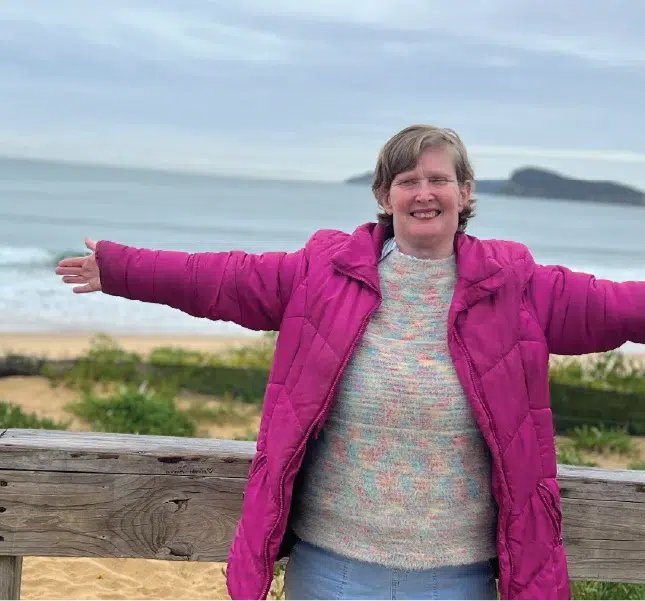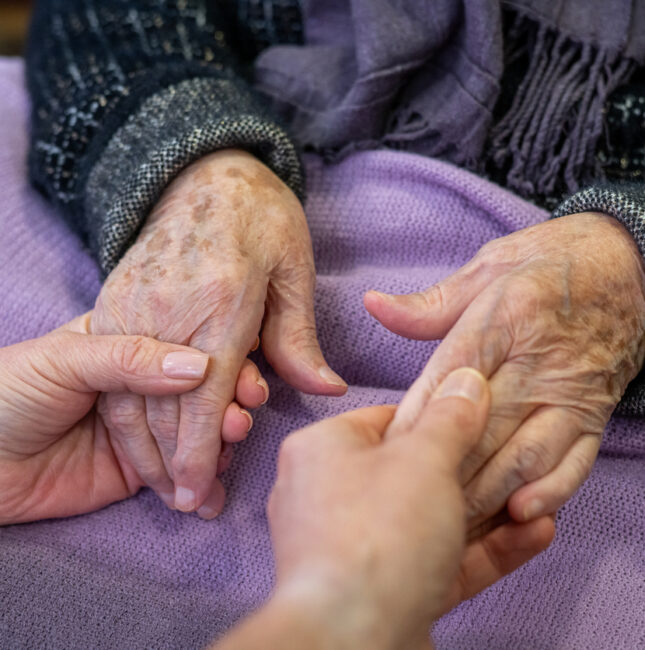Davika emerges from a web of violence
June 18, 2025
Growing up in bustling city of Delhi, Davika never imagined that she would one day call Australia home. Her childhood was humble but happy, with many hours spent sampling street food on the crowded streets with her best friend, Priyanka. As they grew up, the two friends went their separate ways. Davika had settled into life as a single mum in India, and Priyanka had moved to Australia to marry an Australian man. Life, as Davika knew it, changed forever when Priyanka returned to India for a holiday with her husband and her husband’s Australian brother, Steve.
“I met Steve when he was holidaying in my hometown and, at first, we were good friends,” Davika recalls. “After a while, we fell in love, and he proposed to me in front of my whole family. I applied for a visa and moved to Australia to live with him, along with my two teenage children.”
Despite the challenges of adjusting to life in a new country, she was excited about the prospect of life in Australia. “I knew that my kids could get a good education here and I would dream about them achieving whatever they wanted,” Davika explains. Her son was diagnosed with cancer at age three, and Davika was hopeful that he would benefit from the medical care in Australia. Davika had managed to secure employment in Australia, so there were many reasons to be grateful.
Day-by-day, Davika began to see her husband’s true colours as his charm wore away. “One day I found out that my Indian money was gone. I asked Steve where it was, and he got angry. He threw his wallet in my face and said my kids probably took it. I felt so scared. I would often go to work with bruises.”
CatholicCare Case Worker, Fernanda explains that the abuse was amplified by the fact that Steve’s whole family were involved in the violence, including her best friend and sister-in-law Priyanka. “The family were always around making sure that Davika was compliant,” Fernanda explains. “Steve’s family had found Davika her job, and they all worked there too. So, she was not only being watched and controlled at home but at work too. Steve got Priyanka to apply for Davika’s visa, so Priyanka had 100% control over her account. At any time, they could make changes to Davika’s application without telling her.”
Priyanka, who was studying to be an immigration lawyer, played a key role in keeping Davika compliant. “Priyanka would tell her that if she ended the relationship, she would be deported, there were no other options. Davika trusted her,” Fernanda explains. “When Davika was scared, she would go to her and say, ‘I’m so scared, I don’t know what to do.’ Priyanka would say this is normal behaviour for Australian men, and that her job was simply to please him.”
CatholicCare became involved following a referral from her son’s school. “Davika’s son disclosed his concerns to the school counsellor. The children were worried for their mum, they carried a sense of injustice that someone could treat their mother like that. It was something that they had never seen their father, or any male do before,” Fernanda explains.
When Fernanda started working with Davika, she explains that one of the initial goals was for Davika to build her independence and safety. “Davika didn’t have her own bank account and she had no control over her phone or email account. This made it very complex to work with her without anyone finding out. I worked with Davika to create a safe email account, a bank account and a safe phone that she left at work. I also got her an SOS device that she kept on her. A huge step in Davika’s journey towards independence was gaining her motorbike licence.”
In February, Davika decided to leave. She chose to leave at a time when her children were visiting their father in India, because she didn’t want to expose them to the situation. Davika stayed with a friend for two weeks, and once her children returned home, they moved into temporary accommodation.
Fernanda supported Davika throughout this process and helped her to get financial assistance. The focus, over the weeks that followed, was to secure a private rental. “I took her to inspections and supported her with applications, but as a single mother with no rental history, she was not having any success,” Fernanda explains. “In Davika’s mind, whenever her housing application was rejected, it was as if the real estate agent was saying, ‘You’re not good enough to be able to take those places.’
She developed depression and Davika was very resistant to getting help for her mental health. There seemed to be a big cultural barrier there and she felt a lot of shame. This put a lot of pressure on me as a worker, knowing we didn’t have mental health support services involved.”
Fernanda will never forget the day that Davika articulated her plan to end her life. “I received Davika’s email at 4pm on a Friday afternoon, which explained her suicide plan. She wrote that she’d arranged for her children to live with their father in India. I knew she was at work at the time, so I immediately called an ambulance, and I contacted her manager and colleagues. This was a huge wakeup call for Davika, and she realised that ending her life wasn’t what she wanted.”
Fernanda explains that from this day on she entered her own contact details in the housing applications so that she could filter what information was passed onto Davika. “It took 1½ months to secure housing, but she was finally approved for the house she liked most,” Fernanda says.
After many months of hard work, Davika and her children eventually had their permanent residency approved. “I accompanied Davika at all of her legal appointments,” Fernanda explains. “I helped her to tell her story using a trauma informed approach so that she wasn’t retraumatised, and I gathered supporting documentation for the case.”
Davika describes Fernanda as her saviour. “She made me feel lighter whenever I was with her and I always felt so free and open to talk,” Davika says. “Throughout this whole journey, I felt like I could tell her everything.”
Davika’s message for other women experiencing violence is to “find CatholicCare and be honest with them. During the process you need to be strong and believe that one day you will start a new life that is free of worry.”
More news stories like this one
Sarah blossoms at Clarke Road
Find out how the Click & Connect group at the Disability Hub Waitara boosted Sarah's confidence and tech skills over time.
Read MoreIntroducing Crossroad Companions end of life service
When you receive a terminal diagnosis, life can suddenly feel uncertain and overwhelming. Questions arise, roles change, and you may find yourself moving from one medical team to the next. We're here to help.
Read MoreWorld Day of Social Justice – injustice isn’t accidental
World Day of Social Justice isn’t about slogans or good intentions. It’s about facing an uncomfortable truth - the systems we live within do not work equally for everyone, and pretending otherwise costs people their dignity, safety and hope.
Read More


